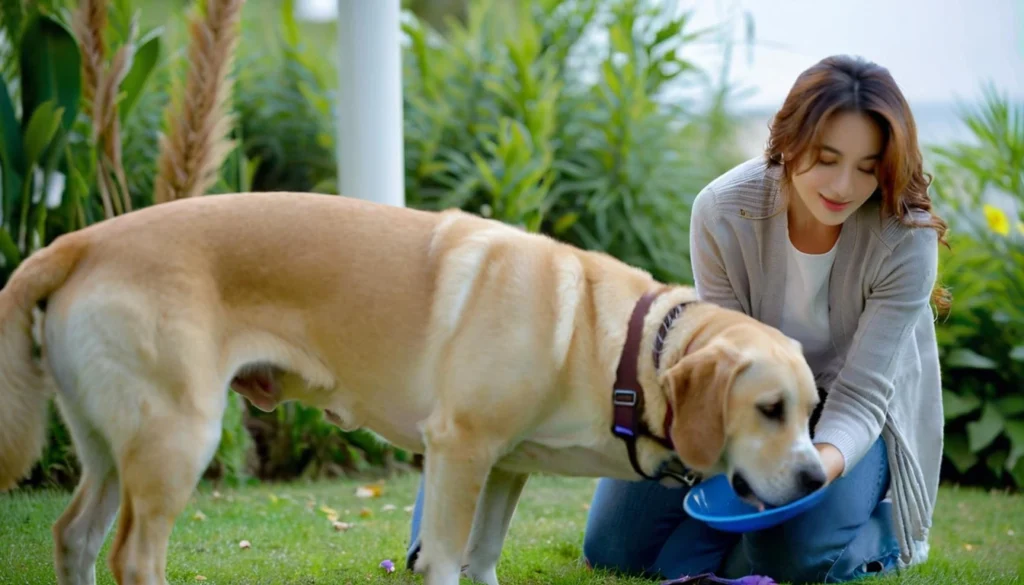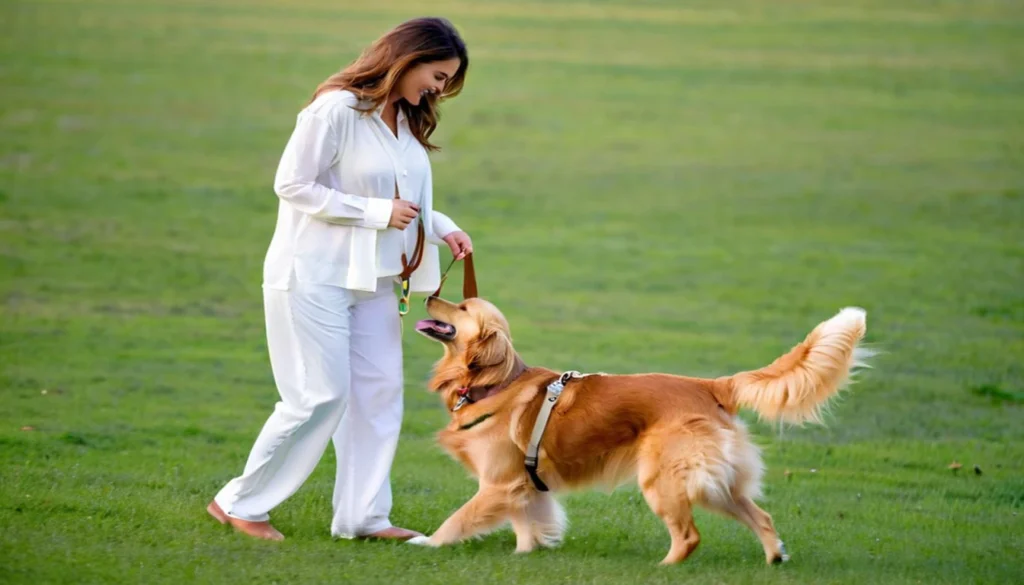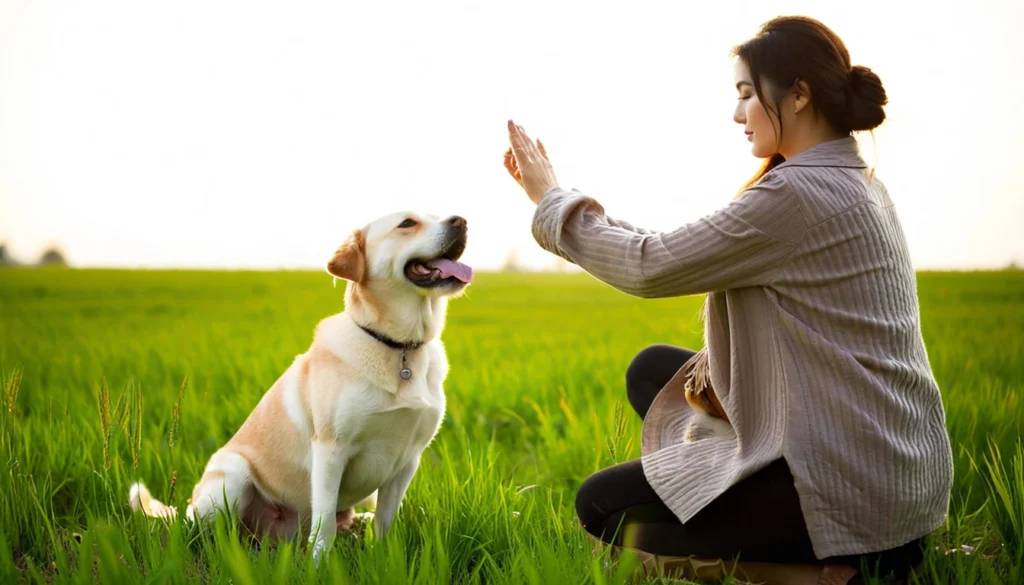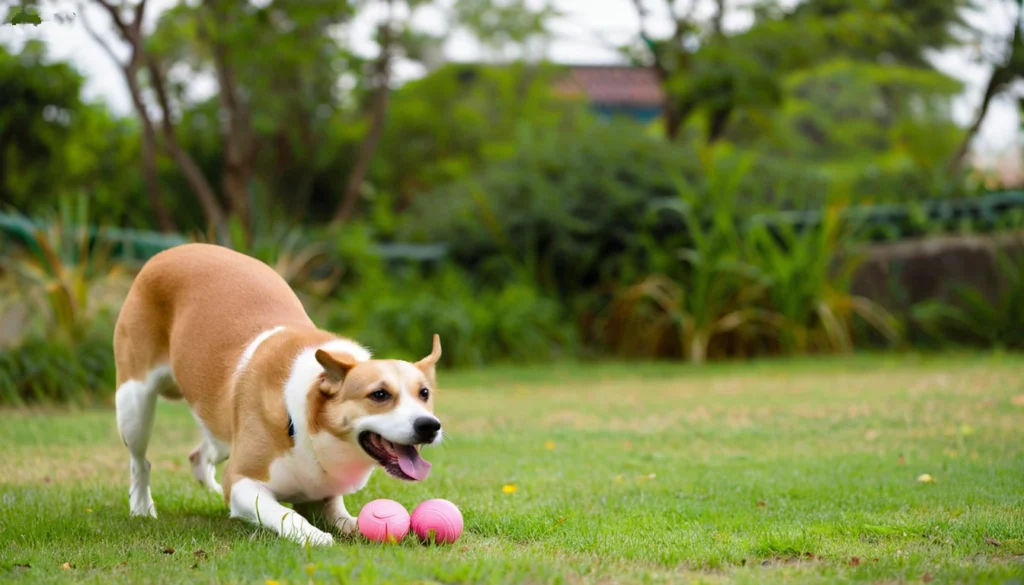Once, my dog would run to me, eager to kiss my face with sloppy licks. These moments were full of joy and showed our strong bond. But now, my dog doesn't lick me anymore. This change has left me wondering, why has my dog stopped licking me?
Maybe you're in the same boat, wondering why your dog isn't as affectionate as before. It's important to understand dog behavior to keep our relationship strong. Let's explore the reasons behind this change together, easing the concerns of dog owners everywhere.
Key Takeaways
- A dog’s licking behavior is deeply tied to their emotional state and affection for their owner.
- Changes in licking can signify health issues, stress, or changes in the environment.
- Understanding why my dog doesn't lick me can help strengthen our bond.
- Reduction in licking behavior may indicate a need for attention or reassurance.
- An open dialogue about dog behavior can promote better pet-owner relationships.
Understanding Dog Behavior and Licking
Licking is a common behavior in dogs that many owners see often. It's a way dogs communicate feelings like love, comfort, and submission. When puppies lick their mothers, it helps them grow and feel safe.
As dogs grow up, they keep licking as a way to show love and bond with humans. Knowing about this behavior helps us connect better with our dogs. It shows how important licking is in their social lives.
The Importance of Licking for Dogs

Licking is key in a dog's social life and feelings. It's not just about staying clean. It's also about showing dog affection. Dogs use licking to bond with people and other animals, showing trust and love.
When dogs lick, it releases happy chemicals in their brain. These chemicals make them feel good and relaxed. This is why dogs often lick themselves or their owners when they're stressed or scared.
Licking is a way for dogs to calm down when they're upset. It helps them feel better and less scared. Knowing how important licking is helps us understand their behavior and feelings better.
Reasons Why Dogs Lick Their Owners
Dogs licking their owners can tell us a lot about their feelings and how they communicate. Often, it's a way to show love and bond. This behavior might come from their early days with their mothers, where licking meant care.
Licking is more than just showing love. Dogs lick to get attention or to play with their owners. They might lick to comfort their owners when they're feeling sad.
Dogs also lick because they are naturally curious. They explore their world by tasting and smelling things. It's amazing how much emotion and information can be in their simple actions.
| Reason for Licking | Meaning |
|---|---|
| Dog Affection | Shows love and bonding |
| Attention Seeking | Desires interaction or response |
| Empathy | Responds to owner's emotions |
| Exploration | Gathers information through taste |
Why Does My Dog Not Lick Me?
Many pet owners wonder, "why does my dog not lick me?" Dogs communicate in many ways, and licking is one. If my dog never licks me, it might mean they're showing a change in behavior. As dogs get older, they might find new ways to show love.
How a dog feels emotionally is key. If they're anxious or uncomfortable, they might not lick. Changes at home, like new pets or stress, can also affect their licking behavior. Sometimes, I might ask, "why won't my dog lick my face?" This could mean they're going through a change or need comfort.
Watching how they act can give clues. Making sure they feel loved and safe can help them lick again. Being patient and attentive can help my dog feel comfortable showing love.

What If My Dog Doesn’t Lick Me at All?
Many dog owners wonder, "my dog never licks me." This makes them question their pet's affection and behavior. It's key to remember that not all dogs show love through licking. Their behavior can vary based on their temperament, breed, and early experiences with humans.
Some dogs might show love in other ways. I've seen dogs that cuddle or stay close instead of licking. Understanding these different ways of showing affection helps me appreciate my dog's unique personality.
If I wonder, "why does my dog not lick me," it's good to know dogs can still be loving without licking. Each dog has its own way of connecting. By noticing these signs, our bond can grow stronger.
Changes in Licking Behavior
Noticing changes in my dog's licking can be worrying. If they stop licking me, it might mean something's off. Many things can change how a dog licks, like their mood or health.
Stress and anxiety can affect a dog's behavior. For example, new places or family changes might make them lick less. They might feel too scared or stressed.
Health issues can also stop a dog from licking. Problems like bad teeth or skin can make them avoid licking. Spotting these changes early is key. It helps me watch my dog closely and might mean a vet visit.
By noticing these changes, I can help my dog through tough times. It helps me meet their emotional or physical needs. This way, they can adjust better to new situations.
Health Implications of Reduced Licking
As a devoted dog owner, I always watch my dog's licking behavior. If my dog stops licking, it might mean they're in pain or uncomfortable. This could be due to allergies, arthritis, or even anxiety.
When my dog doesn't lick, it's a sign that something might be wrong. It could be physical or emotional pain. I make sure to get them professional help right away. A vet can find out what's wrong and help my dog feel better.
Going to the vet regularly is key to keeping my dog healthy. By noticing if they lick less, I can catch problems early. Taking care of my dog's health is my top priority, and I do everything I can to keep them happy and healthy.
Stress and Anxiety in Dogs
When I notice changes in my dog's behavior, it worries me. A decrease in licking is a sign of dog stress. Other anxiety signs include excessive barking, pacing, and changes in eating habits.
It's important to know when to see a vet. If my dog's anxiety signs don't go away or get worse, I need to act fast. A vet can check my dog's behavior and suggest the right treatment.
Making my dog's environment calm and stable is key. I can use positive reinforcement and regular routines to help. This way, I can make my dog feel more at ease and secure.

Training Alternatives to Licking
Dealing with my dog's licking habits has led me to explore different solutions. Training dogs with the right methods can lessen licking and improve our bond. Using positive reinforcement is key. It rewards my dog for not licking and for good behavior.
Redirecting licking to lick mats or chew toys is a great strategy. These items keep my dog busy and satisfy their natural urges. When they choose these options over licking, I give them a treat. This encourages them to prefer these activities.
Creating a routine that includes these alternatives helps too. It takes time and effort, but it's worth it. I'm working towards a better relationship with my dog, one without too much licking.
Setting Boundaries and Expectations
It's key to set clear boundaries for dogs for a happy home. I've found that telling my dog what licking is okay helps a lot. Being consistent in how I talk to my dog shapes their behavior well.
I use treats and praise when my dog acts right. For example, if they stay close but don't lick, I reward them. This shows them what's okay and what's not. Doing this often makes our home loving and teaches good habits.
Here's a simple guide to show what's good and what's not, and how to handle it:
| Behavior Type | Example | Strategy |
|---|---|---|
| Desired Behavior | Sits quietly next to me | Offer treats and praise |
| Undesired Behavior | Licking excessively when I sit down | Redirect to a toy or command |
| Desired Behavior | Responds to “off” or “no lick” | Use firm but gentle commands |
| Undesired Behavior | Pawing or jumping while licking | Teach “leave it” command |
By knowing and acting on these behaviors, my dog and I get along better. Setting clear boundaries for dogs makes our home a place where we both grow. It means my dog feels loved and respected, following the rules we've set.
When Licking Becomes Excessive
Excessive licking in dogs can show deeper issues or stress. I watch my dog's licking closely to understand his feelings. It's important to find out what makes him lick too much.
Common reasons for licking include anxiety and boredom. For example, if my dog licks his paws a lot when alone, it might be due to separation anxiety. If he licks because he's bored, giving him toys or exercise can help. Creating a fun environment has helped reduce his licking.
It's key to know when licking is too much for my dog's health. If it's linked to stress or anxiety, I might talk to a vet for advice. Knowing why he licks too much helps me care for him better and keep him happy.
Why Do Certain Dog Breeds Lick More?
Some dog breeds lick more than others. This is often due to their genetics and traits. Knowing what makes these breeds different can help us understand why they lick so much. For example, dog breeds licking can vary a lot, but some are known for licking more often.
Observations show that some breeds lick a lot. This behavior comes from their instincts and the jobs they were bred for. Here's a table showing some dog breeds that lick a lot and why:
| Dog Breed | Known For Licking | Reason for Behavior |
|---|---|---|
| Labrador Retriever | High | Affectionate nature and social behavior |
| Golden Retriever | High | Friendly disposition, often expresses love through licking |
| Beagle | Moderate | Curious and playful; licks out of excitement |
| Pug | Moderate | Playfulness and wanting to engage with owners |
| Chihuahua | High | Strong attachment to owners and need for attention |
It's interesting to see which dogs lick the most and think about their backgrounds. Looking at each breed's special qualities helps us understand why some lick more. This knowledge can make our bond with our pets even stronger.
Is It Safe for My Dog to Lick Me?
Many dog owners worry about their pets licking them. But, is it safe for dogs to lick me? For most people, the risks are small. Dog saliva has bacteria, but it's rare for these to cause harm through licking.
To stay safe, I take extra steps. This is especially true if I have open wounds or skin issues. Keeping my dog's mouth clean is key. Regular dental care and avoiding dirty places help a lot.
However, some people need to be more careful. This includes those with weak immune systems. It's wise to talk to a vet for advice. Knowing if it's safe for dogs to lick is important for pet care.
Conclusion
Figuring out why my dog doesn't lick me anymore helps us understand our bond better. Dogs have complex behaviors, and knowing what affects them can strengthen our connection. Mood changes, health issues, or new ways of communicating are all part of it.
By watching my dog and talking openly, I create a caring space for both of us. It's key to keep our relationship strong, even if licking isn't as common.
Not licking doesn't mean there's a problem. It's a chance to think about our connection and meet his needs. With love and stability, we can build a happy bond.




